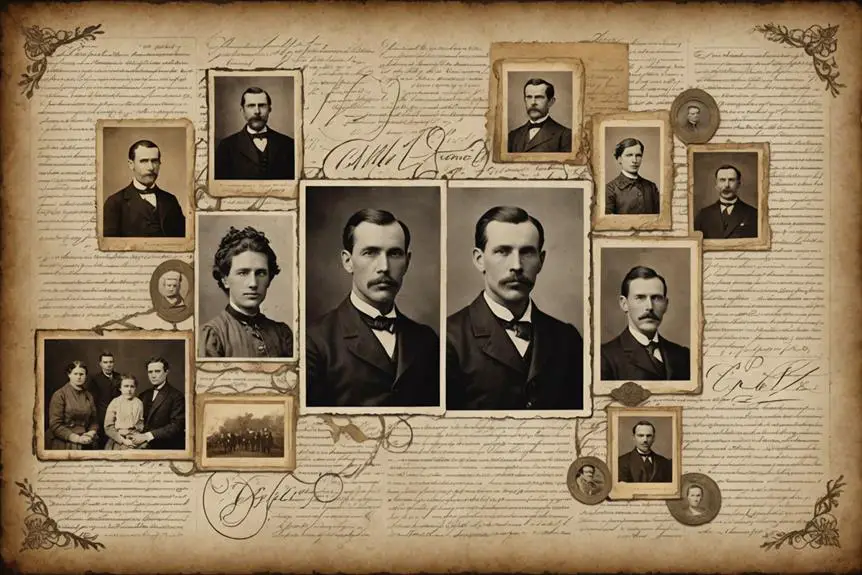Céline's history is fascinating, evolving from its roots in the world of fashion to become a powerhouse brand. Founded in the 1940s by Céline Vipiana, the brand initially specialized in children's shoes before expanding to women's ready-to-wear and leather goods. Céline gained recognition in the 21st century, particularly under the creative direction of Phoebe Philo, who redefined the brand with a modern aesthetic that emphasized minimalist elegance and timeless designs.
Throughout the years, Céline has demonstrated remarkable adaptability, merging traditional craftsmanship with contemporary trends, which has allowed it to resonate across various cultural landscapes. The brand's evolution also reflects the broader shifts in the fashion industry, as it embraced sustainability and inclusivity. Understanding Céline's journey reveals not only its significant impact on fashion but also the personal stories of the artisans and creatives involved in its legacy, hinting at the rich narratives woven into its identity.
Origins of the Céline Name

The origins of the Célina name reveal a rich tapestry of linguistic and cultural influences. Mainly of French origin, Célina traces its roots back to the Latin name "Caelina," which signifies "heavenly" or "divine." This etymology reflects a deep-seated connection to positive celestial connotations, enhancing its appeal across generations. You might notice that Célina has shifted from being primarily a given name to a recognized surname, particularly gaining momentum in the 19th and 20th centuries.
Notable figures, such as the internationally celebrated singer Céline Dion, have bolstered the name's visibility and popularity, linking it to talent and success. Variations, including Celine and Selina, demonstrate the name's adaptability and cross-cultural influences, illustrating how linguistic shifts can alter its presentation while maintaining core meanings. Historical records indicate that during the 19th and 20th centuries, Célina emerged more frequently in France and its territories, reflecting broader social trends and cultural exchanges. This evolution underscores how names can encapsulate personal identity while simultaneously resonating within larger historical narratives.
Historical Significance of Céline
Historical Significance of Céline
Céline's historical significance extends beyond its etymological roots, reflecting a broader narrative woven into cultural, social, and familial contexts. The surname Cline, an Americanized form of the German or Dutch "Klein," traces its lineage back to the Rhineland, highlighting the immigrant experience in North America. Importantly, the evolution of brands such as Celine in the fashion industry showcases how cultural influences shape consumer identities and trends, illustrating a similar journey of adaptation and transformation vintage Celine identification techniques. The migration of Cline families primarily from the 17th to the 20th centuries, especially into Pennsylvania, marks a critical chapter in American history.
Notable figures like mathematician Felix Klein and Lutheran pastor Daniel Klein illustrate the diverse contributions of Cline descendants to academia and religion, enriching their respective fields. The family's connection to the Tudor Fiants of the 16th century reveals their earlier presence in Ireland, showcasing a transatlantic heritage that spans generations.
In modern times, Cline family reunions held every two years emphasize the importance of preserving this rich lineage. These gatherings not only celebrate individual heritage but also reinforce the ties that bind the family together. Consequently, the historical significance of Céline lies in its embodiment of migration, settlement patterns, and the resilience of family ties, making it a poignant symbol of cultural continuity.
Céline Family Spelling Variations

Variations in the spelling of surnames like Célina highlight the intricate tapestry of cultural influences and historical migrations that shape family identities. The surname Célina, much like its counterpart Cline, manifests in several forms including Klein, Kline, and Clein, each reflecting the diverse linguistic landscape of medieval Germany. Regional dialects and the phonetic recording practices of scribes often led to these spelling variations, complicating the genealogy of families associated with the name.
Historical records reveal further variants such as Clyne, Clynne, and Clines, underscoring the distinct branches or migrations within the Célina family lineage. The absence of standardized spelling rules during medieval times contributes greatly to the challenges of tracing the name's exact origins and its variants. This complexity is essential for anyone delving into genealogy research, as understanding these spelling variations is vital for accurately identifying family connections and documenting historical narratives.
Notable Figures in Céline History
Notable figures in the history of the Célina family have made significant contributions across various fields, shaping not only their communities but also the broader cultural and intellectual landscapes. Daniel Klein, a Lutheran pastor from Prussia, exemplifies the impact of religious leadership in the 17th century, promoting educational advancements that would resonate through generations. Meanwhile, Felix Klein, a German mathematician, transformed mathematical theory and pedagogy in the 19th century, demonstrating the influence of Cline descendants in academia.
In the domain of genealogy, George B. Cline's work, *The Cline Families of North Carolina 1750-1860*, serves as an essential historical document, tracing the lineage of the Cline family in America. His insights illuminate the family's immigration patterns and their settlement in Pennsylvania. Additionally, Robert Muller played a significant role in uncovering the Cline family's historical records in Alsace, enriching our understanding of their ancestry.
Jacob Cline, known for witnessing Michael Cline's will in 1784, anchors the family's early history in Rowan County, North Carolina. Each of these notable figures not only shaped their fields but also contributed to the rich tapestry of Célina history.
Migration Patterns of the Céline Family

Throughout the late 17th and early 18th centuries, the Cline family commenced a significant migration journey that reflected broader social and economic trends of the time. Originating from the Palatinate region of Germany, they sought refuge from invasions and the promise of better economic opportunities in North America. The journey began with key figures like Sebastian Klein, who settled in Lincoln County, North Carolina, around 1752, paving the way for future generations.
The migration patterns of the Cline family reveal a strategic response to land ownership prospects and economic conditions. Many settled in Pennsylvania, forming a substantial base before spreading to states like North Carolina, Georgia, and eventually Texas.
| Year | Location |
|---|---|
| 1732 | Pennsylvania |
| 1752 | North Carolina |
| 1800s | Georgia |
| 1900s | Texas |
Family reunions and extensive genealogical research have played essential roles in tracing the Cline family's legacy. These gatherings not only celebrate their history but also reinforce connections forged through shared experiences and aspirations, further enriching the understanding of their migration narrative.
Cultural Impact of the Céline Name
The Cline surname, with its roots in the Rhineland, has significantly influenced cultural landscapes across the United States, particularly in regions like Pennsylvania and North Carolina. As families migrated from Europe between the 17th and 20th centuries, they brought with them rich traditions and values, enriching the cultural tapestry of their new homes. This migration underscored the surname's cultural significance, as Cline families integrated into American society while preserving their heritage through genealogy.
The various spelling variations of the surname, such as Klein and Kline, reflect the diverse cultural influences of medieval Germany, showcasing the adaptability of the Cline identity. Family reunions have played an essential role in community engagement, fostering connections among descendants and reinforcing a shared sense of belonging. These gatherings not only celebrate ancestry but also promote the continuity of Cline traditions, contributing to a broader understanding of American heritage.
The recognition of the surname Cline in the Dictionary of American Family Names highlights its established status within American identity. By examining the cultural impact of the Cline name, you can appreciate how it embodies the complex interplay of migration, community, and cultural preservation in the United States.
Céline Name in Modern Context

As the Cline surname continues to evolve in modern America, it reflects a tapestry of cultural heritage and contemporary identity. While its popularity has seen a slight decline, the Cline name embodies a rich history rooted in Western European ancestry, particularly from German and Dutch origins. The surname's presence is especially notable in states like Pennsylvania, which serves as a demonstration to early immigration patterns.
Key aspects of the Cline surname today include:
- Diverse Heritage: Approximately 53.2% of individuals with the surname have British and Irish ancestry, with 29.3% tracing roots to French and German backgrounds.
- Cultural Significance: The name carries significant cultural roots, linking families to their historical narratives.
- Recent Popularity Trends: From rank 628 in 2000 to rank 684 in 2010, the Cline surname's standing reflects changing demographics.
- Health Insights: Health data reveals that 18.9% of individuals with the surname experience severe headaches, surpassing the average among general 23andMe users.
Navigating the modern context of the Cline surname, you see how its history intertwines with contemporary identity, demonstrating the ongoing evolution of cultural narratives in America.
Frequently Asked Questions
What Is the Origin of the Name Cline?
The name Cline originates from the German or Dutch surname Klein, meaning "small." It also serves as a Jewish variant, reflecting cultural ties, while its presence in Ireland dates back to the Tudor Fiants.
How Rare Is the Last Name Cline?
The last name Cline isn't extremely rare but has seen a decline in popularity. As of 2010, it ranked 684th in the U.S., with a slight increase in total individuals using the name.
When Did Clines Come to America?
The Cline family first migrated to America in 1732, arriving in Pennsylvania. Seeking better opportunities and escaping hardship, they established roots in various states, reflecting their desire for land ownership and improved living conditions.
Is Cline an Irish Name?
Yes, Cline is indeed an Irish name, tracing its roots to Counties Roscommon and Longford. It's linked to the Kilcline family, reflecting rich heritage and migration patterns that shaped Irish-American identity.





2 Comments